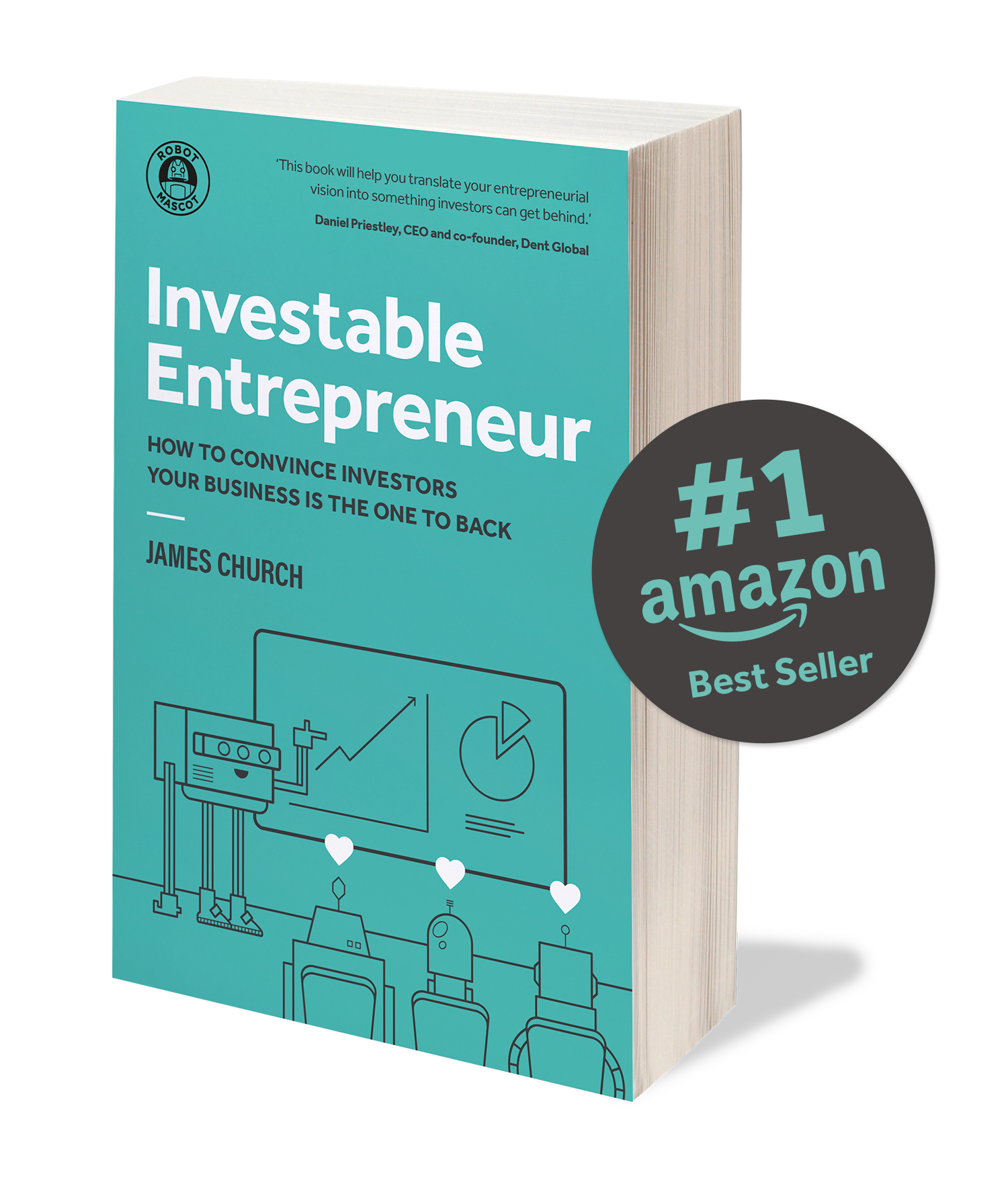

What Are Preferential Shares? A Startup’s Guide
20th April 2023
This article is a complete guide to preferential shares specifically for startups. We will explore the features, advantages and disadvantages of preferential shares, as well as the different types of preferential shares that investors can consider. As a startup founder or other stakeholder, understanding preferential shares will help you make informed investment decisions and potentially earn higher returns.
What are preferential shares? A definition
Preferential shares are a type of equity security that offer certain benefits to investors issued by companies. They are a hybrid security that combines elements of both debt and equity financing. They provide investors with preferential treatment in terms of dividends and liquidation proceeds compared to common shareholders and, as such, are an attractive investment option for investors who are seeking a more stable and predictable source of income.
One of the key features of preferential shares is that they have priority over common shares when it comes to receiving dividends which means that in the event of a company issuing dividends, preferential shareholders have the right to receive their dividends before any payments are made to common shareholders. This is because preferential shares have a fixed dividend rate, which is set at the time of issuance. The dividend rate is often higher than that of common shares, providing a reliable and stable source of income for investors.
Another important feature of preferential shares is that they offer preference in the event of a company’s liquidation. In the event of a company being wound up or sold (i.e you achieve an exit), preferential shareholders have the right to receive their share of the proceeds before any payments are made to common shareholders. This means that if the company is unable to meet all its obligations, preferential shareholders are more likely to recover their investment (or guaranteed return) than common shareholders.
What are the different types of preferential shares?
Cumulative preferred shares
These shares may be attractive to investors in startups who are looking for a predictable source of income, as the dividends accumulate and are paid in the future when the startup can afford it. This can be particularly important for investors who are looking to receive a steady stream of income from their investment.
Non-cumulative preferred shares
These might be a useful option for startups who are not yet profitable and may not be able to afford to pay dividends in the short term. Non-cumulative preferred shares may be more flexible for startups as you are not required to pay back dividends that were missed.
Convertible preferred shares
These can be used in startup fundraising to provide a path for investors to convert their investment into common shares at a later date which can be attractive to investors who are looking for a potential upside in the form of capital gains from a successful exit.
Redeemable preferred shares
These can be used by startups to provide a way for investors to exit the investment at a predetermined price or date so they’re attractive to investors who may be concerned about the liquidity of their investment.
Participating preferred shares
Startups can use these shares to offer investors a fixed dividend as well as a share of any additional dividends paid to common shareholders – a good incentive for investors who are willing to take on more risk for the potential of higher returns.
Adjustable-rate preferred shares
This is an attractive option for investors who are looking for a more predictable source of income because the dividend rate is tied to a predetermined benchmark or interest rate.
Floating-rate preferred shares
This type of share is often used by a startup to provide investors with a dividend rate that adjusts over time based on changes in a benchmark interest rate. Investors like this because it offers a potential increase in income if interest rates rise in the future.
Perpetual preferred shares
Startups can offer investors a long-term source of income as the shares have no maturity date and pay dividends indefinitely. This is great for investors who are looking for a steady stream of income for the long term.
What are the advantages of preferential shares?
Preferential shares offer several advantages for investors, making them a popular investment choice. As such it is important for startups to understand the incentives and how they can leverage demand.
One of the most significant investor advantages of preferential shares is the potential for higher dividends compared to common shares. Preferential shareholders have priority over common shareholders when it comes to receiving dividends. This means that in the event of a company issuing dividends, preferential shareholders have the right to receive their dividends before any payments are made to common shareholders. The dividend rate on preferential shares is often higher than that of common shares, providing a reliable and stable source of income for investors.
Another advantage of preferential shares is the lower level of risk to investors compared to common shares. This is because preferential shareholders have priority in the event of liquidation. In the event of a company being wound up or sold, preferential shareholders have the right to receive their share of the proceeds before any payments are made to common shareholders. This means that if the company is unable to meet all its obligations, preferential shareholders are more likely to recover their investment than common shareholders.
Preferential shares also offer flexibility in terms of the terms and conditions of the investment meaning that investors can choose the type of preferential share that best suits their investment objectives and risk tolerance. For example, cumulative preference shares offer the potential to accumulate unpaid dividends, while participating preference shares offer the potential for additional dividends beyond the fixed rate.
What are the disadvantages of preferential shares?
Preferential shares can offer various advantages to investors, however, there are potential disadvantages that startups should be aware of.
One of the most significant disadvantages of preferential shares is the lack of voting rights. Unlike common shares, preferential shares do not offer voting rights, meaning that the investor cannot vote on important company matters, such as the appointment of directors or changes to the company’s articles of association. This can be a disadvantage for investors who want to have a say in the management of the company.
Another potential disadvantage of preferential shares is the potential for a lower return on investment compared to common shares. While preferential shareholders have priority when it comes to receiving dividends and the proceeds of liquidation, they may not benefit from the same level of growth in the company’s share price as common shareholders. This means that if the company performs exceptionally well, common shareholders may benefit from an increase in the share price, while preferential shareholders may not see the same level of return on their investment.
Preferential shares are also less liquid than common shares, meaning that they are more difficult to buy and sell in the market. This can make it difficult for investors to exit their position quickly if they need to liquidate their investment.
Finally, the terms and conditions of preferential shares can be complex and may contain restrictions or covenants that limit the shareholder’s ability to sell or transfer their shares. This can limit the investor’s flexibility in managing their investment portfolio.
Examples
Preferential shares are a popular investment choice for many companies in the UK, and many businesses have issued preferential shares to raise capital for a variety of purposes. Check out these examples of companies that have issued preferential shares and how they have been used.
Monzo Bank
UK-based digital bank Monzo raised over £560 million in funding since its inception in 2015. Monzo used preference shares in their Seed Series Funding and Series A funding rounds to raise capital from investors while giving them a higher level of protection and priority over common shareholders.
Bulb Energy
Bulb Energy is a UK-based green energy supplier that has raised over £100 million in funding since its launch in 2015. The company used preference shares in their funding round to raise capital from investors and give them priority over common shareholders in the event of a liquidation or sale of the company.
Graphcore
Artificial intelligence chip manufacturer Graphcore has raised over £627 million in funding since its founding in 2016.The company used preference shares in their Series A funding round to raise capital from investors while giving them a higher level of protection and priority over common shareholders.
Several UK companies have issued preferential shares to raise capital for a variety of purposes, including funding acquisitions, improving their capital position, and supporting their transition to renewable energy sources. The terms and conditions of the preference shares can vary depending on the issuer’s objectives and the market conditions at the time of issue. Investors should carefully review the terms and conditions of the preference shares before making an investment decision.
Preferential shares: A summary for startups
The key thing to remember as a startup founder is that not all shares are created equally. Investors will often try to make preference shares part of the deal in order to reduce their risk and protect their investment. It’s important when in negotiations that you have a good understanding of the following:
Understand the terms and conditions
It is essential to carefully review the terms and conditions of any preferential shares before issuing them. They can vary significantly depending on the issuer’s objectives and the market conditions at the time of issue. For example: dividend rate, payment frequency and whether the shares are cumulative or non-cumulative.
Consider the impact on ownership and control
Issuing preferential shares can dilute the ownership and control of the existing shareholders, including the founders. How will this impact your ownership structure and control of the company?
Understand the rights and restrictions
Preferential shares often come with specific rights and restrictions that can impact the company’s future operations. For example, some preferential shares may come with restrictions on how the company can use the funds raised or may require the company to meet certain financial performance targets.
Plan for the long-term
You will need to think about the long-term implications of issuing preferential shares because, while they can be an effective way to raise capital, they can also create obligations that must be met for an extended period. Think about your ability to meet the dividend payments and the impact of these payments on your financial performance over the long term.
Consider the potential impact on future funding rounds
Issuing preferential shares can impact future funding rounds by potentially limiting the amount of capital that can be raised or by creating conflicts with future investors who may be seeking different terms.
As a startup, you should carefully consider the terms and conditions, impact on ownership and control, rights and restrictions, long-term implications, and potential impact on future funding rounds before deciding to issue preferential shares. By doing so, you will be making informed decisions that align with your objectives and set you up for long-term success.
The most important thing is to not get caught up in the excitement of closing an investment round. We would always suggest that you take a step back and seek legal advice on any investment agreement to ensure you are aware of any potential downsides to the investor’s requested terms and conditions. Our partners SeedLegals offer incredible support in this area.
We hope you found this guide informative and if you want to find out more about how to raise investment, you can claim a free copy of our bestselling book Investable Entrepreneur.
Learn how to convince investors
Investable Entrepreneur takes you through our winning methodology – the process we use to increase our client’s chances of raising investment by more than 30x.
“This book will help you translate your entrepreneurial vision into something investors can get behind.”
Daniel Priestley, CEO and founder, Dent Global and four times best-selling business author

Keep up to date with what we’re up to via email






Copyright ©Robot Mascot Ltd. All rights reserved.







